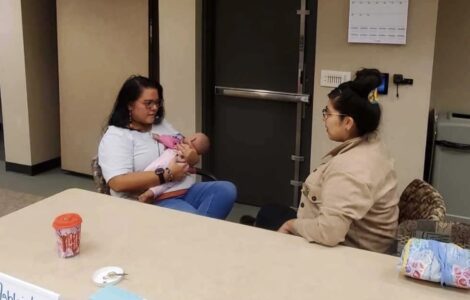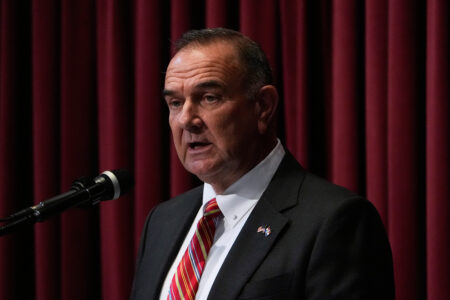Douglas County nonprofits that serve low-income Kansans receive Access to Justice Grants

photo by: Kim Callahan/Journal-World
The Douglas County Judicial and Law Enforcement Center is pictured on Sept. 4, 2024.
The Kansas judicial branch awarded $900,000 in Access to Justice grants for fiscal year 2026 to four nonprofit organizations that provide legal or alternative dispute resolution services to indigent and low-income Kansans.
The grant-funded projects help people who cannot afford traditional legal services including many who represent themselves in court out of necessity.
The recipients and their grant awards:
• Kansas Legal Services was awarded $715,108 to provide services to self-represented litigants and low-income Kansans. Services include legal representation in domestic and civil cases, brief legal advice at courthouse self-help centers for people who don’t have an attorney, a statewide Access to Justice Advice Line service, alternative dispute resolution services, and a Guardian Ad Litem Support Center.
• Kansas Holistic Defenders was awarded $86,250 to sustain the Douglas County Civil Attorney Project, which provides direct pro bono representation and brief advice to indigent county residents in eviction cases and other civil matters. The organization began the program in 2023.
• The Layne Project 4 Families was awarded $52,500 to provide its BeH2O co-parenting program to low-income families in rural Kansas. This program provides dispute resolution services and parenting coaching for families with family court involvement.
• Building Peace was awarded $46,142 for its Expanding Civil Conflict Resolution Services in Douglas County project. The project will expand small claims and tenant-landlord mediation services and work to develop a sustainable model for ongoing delivery of these services.
For more than 25 years, the Kansas Legislature has funded the Access to Justice grants awarded by the Kansas Supreme Court. The grant awards are based in part on the geographic reach of services and the number of persons to be served. Organizations that receive grants use them to provide direct legal representation, brief legal advice, and mediation services to the public, as well as support for guardians ad litem.





